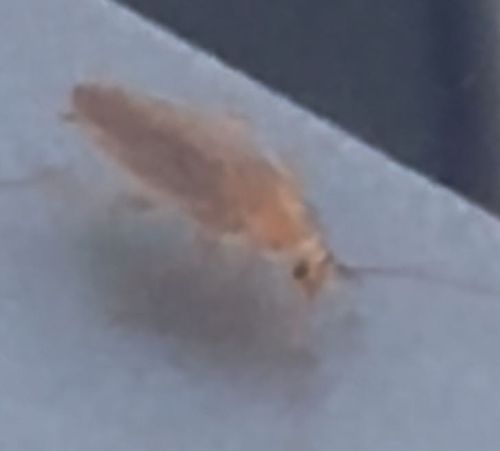Psocid (Booklouse)
Scientific Name: Psocoptera (diverse species)
Order & Family: Order: Psocoptera, Family: Various (e.g., Liposcelididae, Psocidae)
Size: 1-2 mm

Natural Habitat
Damp, dark, and humid environments; often found in books, stored foods, walls, and other organic materials where mold and mildew can grow.
Diet & Feeding
Fungi, mold, mildew, dead insect fragments, starchy materials, and other organic debris. They do not bite humans or pets.
Behavior Patterns
They are typically nocturnal and prefer undisturbed areas. They reproduce quickly in favorable conditions (high humidity, abundant food). Some species are wingless, while others have wings. They are not known to carry diseases.
Risks & Benefits
Potential risks: Can cause damage to books, paper, and stored food products by feeding on mold and starches. Their presence indicates high humidity, which can itself be problematic in a home. Benefits: None significant to humans, but they are decomposers in the ecosystem, feeding on decaying matter.
Identified on: 9/19/2025